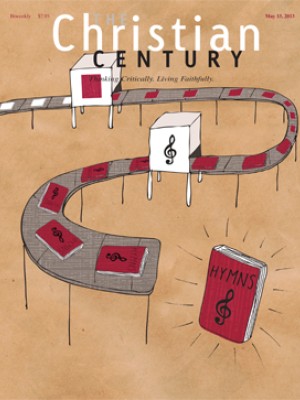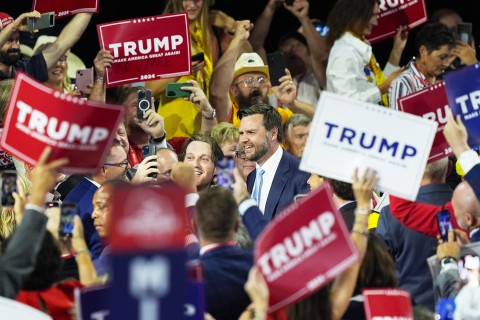Movie about Robinson misses Christian dimension
A new film about Jackie Robinson, titled 42—the number he wore during his historic career—tells the triumphant story of how Robinson integrated professional baseball by playing for the Brooklyn Dodgers. But there’s a mysterious hole at the center of this otherwise worthy film.
The man who chose Robinson for his role and masterminded the whole affair was Dodgers general manager Branch Rickey, played in the film by Harrison Ford. In their initial meeting, the cigar-chomping Rickey makes it clear that whoever will be the first African American in major league baseball will be viciously attacked, verbally and physically. So Rickey famously says he’s looking for a man “with guts enough not to fight back.” He needs someone who will resist the temptation to retaliate. Robinson agrees to go along with the plan.
Read our latest issue or browse back issues.
But where did Rickey get that crazy idea and why did Robinson agree? The film doesn’t tell us, but the answers to these questions lie in the devout Christian faith of both men.
For starters, Rickey himself was a “Bible-thumping Methodist” who refused to attend games on Sunday. He sincerely believed it was God’s will that he integrate baseball and saw it as an opportunity to intervene in the moral history of the nation, as Abraham Lincoln had done.
And Rickey chose Robinson because of the young man’s faith and moral character. Numerous other Negro League players were considered. Rickey knew integrating the racist world of professional sports would take more than athletic ability. The attacks would be ugly, and the press would fuel the fire. If the player chosen were goaded into retaliating, the grand experiment would be set back a decade or more.
Rickey knew he must find someone whose behavior on and off the field would be exemplary and who believed “turning the other cheek” was not just the practical thing to do but the right thing. In their historic meeting, to underscore the spiritual dimension of the undertaking, Rickey pulled out a book by Giovanni Papini, titled Life of Christ. He opened to the passage about the Sermon on the Mount and read it aloud.
We know that Robinson’s passionate sense of justice had gotten him into trouble earlier in life. But the patient mentoring of pastor Karl Downs convinced him that Christ’s command to “resist not evil” wasn’t a cowardly way out but a profoundly heroic stance.
When he met Rickey, Robinson was prepared for what lay ahead and agreed. But it was a brutally difficult undertaking. Robinson got down on his knees many nights during those first two years, asking God for the strength to continue resisting the temptation to fight back or say something vicious in return.
But the filmmakers of 42 were evidently uncomfortable with this part of the story and simply avoided it. In baseball terms, they pitched around it.
Of course, Hollywood has been skittish about faith and religion since at least the late 1960s.
Even in Amazing Grace (2007), about British abolitionist William Wilberforce, the story of his conversion and the huge role faith played in his political efforts is essentially left out.
Omitting the role of faith in Robinson’s story does a serious disservice to history—and to the memories of Robinson and Rickey. It’s also financially foolish. The recent mega-success of The Bible miniseries and the $600 million earned by Mel Gibson’s The Passion of the Christ in 2004 show that the audience for faith-friendly films is huge and growing.
Rickey did what he did because he believed bringing African Americans onto the baseball field would bring them into the stands, too, and ticket sales would increase. Which is precisely what happened. —USA Today






